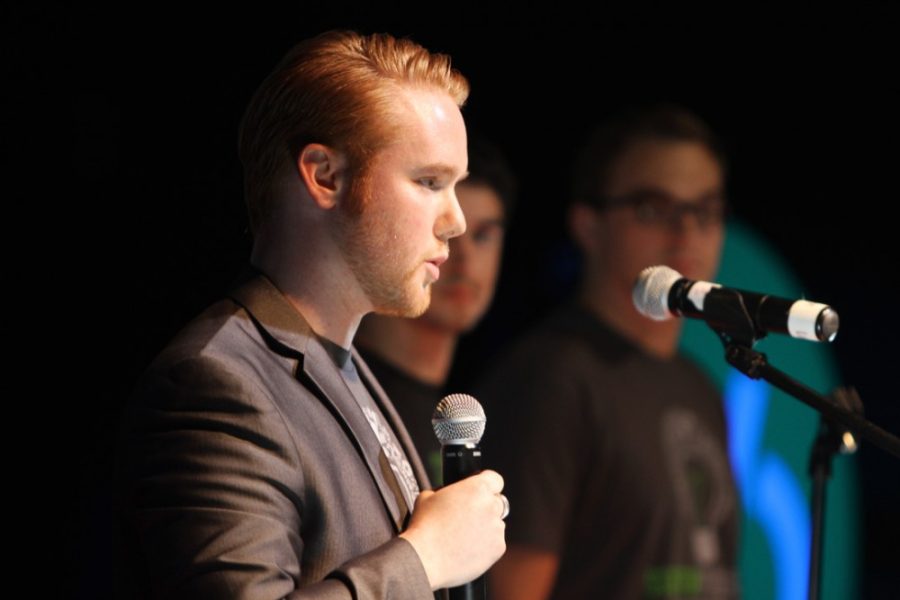Fans of the ABC show “Shark Tank” had the chance to experience the nerve-racking tension of pitching ideas to business executives at a competition this past weekend.
The Fourth Annual Startup Tucson Weekend, in partnership with Connect Coworking, took the concept of “Shark Tank” and placed it at The Rialto Theatre. Minus the cameras, the competition virtually operated in the same manner as the show.
Young entrepreneurs were challenged to pitch their business ideas to CEOs and executives with the hopes of winning the competition for their business plan. The night consisted of 13 different teams with various business plans hoping to earn the judges’ recognition. Unlike the contestants on “Shark Tank,” the teams only had 54 hours to build and launch an incredible concept.
The entrepreneurs could only hope to get one of the credible investors to like their idea. The crowd was filled with people curious about these ideas, like Mayor Jonathan Rothschild, who showed up to observe the competition.
The winner of the night was Wildcat Security Systems, is a program focused on increasing the efficiency of the security systems on the UA campus to help address emergencies faster.
Each team was given five minutes to present its ideas to the judges, followed by questions judges had for the participants. The ideas covered a broad spectrum, from a safety-conscious phone app to an organization trying to stop the poaching of elephants for ivory.
“I like being able to meet people with crazy ideas,” said Elliot Ledley, the master of ceremonies for the event. “It shows me that potentially anything is possible.”
A proposal called Put It Down encouraged teenage drivers to leave their phones alone while driving by giving monetary incentives per distance driven without using a phone. The app can track the trips the driver makes in order to prevent cheating the system. They must be driving over 10 miles per hour and the trip must be over a half-mile in order for the trip to register.
“Every week, the teenage driver submits a money pledge request to their parent for a weekly driving-without-texting goal,” said David Hazan, one of the creators of Put It Down in an interview with Connect Coworking. “Once a parent accepts the pledge, the driving campaign begins. This monetary pledge aligns the wants of the parents — their children’s safety — and what kids want — money for movies, dining, etc. Since parents are already giving their teens money every week, this creates a way for parents to use that same money as a reward for good driving behavior.”
Hazan said he thinks this is an issue that can be seen in Tucson.
“I thought texting and driving among teens was a problem that needed to be solved,” Hazan said.
Another competitor, Michelle Livingston of Go Ivory Free, said about winning, “It would be great to win because I would be getting validation and recognition from these esteemed judges.” Livingston also received her MBA from the Eller College of Management in December 2013. Go Ivory Free encourages the boycott of ivory from elephants to avoid their potential extinction by 2020.
An idea that struck gold with UA students in the audience was a concept called The Cup. Presented by Stephen Ost and Mahir Pedersoli, the idea essentially stops people from stealing soda from the Coca-Cola Freestyle drink machines when they only paid for water cups. The Cup will scan the soda cup and ensure that the restaurant can remain profitable.
Another notable idea at the event, called E-Fit, was presented by Nick Morin, Isaac Ost and Jake Hewitt. Its premise focuses on increasing the health and wellness of employees working at large corporations. The employees get rewards for exercising regularly.
The panel of judges at the competition included Curtis Gunn, Desert Angels chairman; Dr. Michael Kasser, CEO and president of Holualoa Companies; and Linsay Craten, a UA McGuire Entrepreneurship Program mentor.
—Follow Lindsey Stegemoller @lstegs









